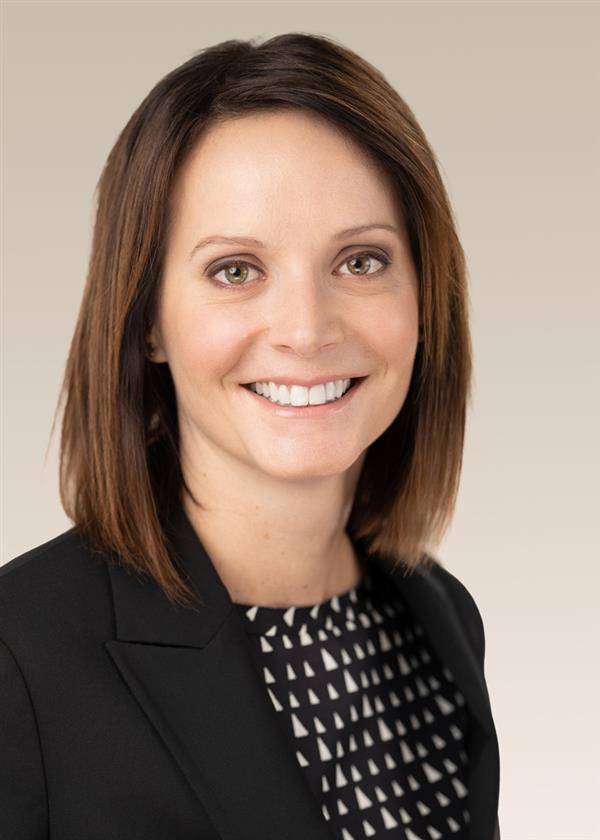- Doctors & Departments
-
Conditions & Advice
- Overview
- Conditions and Symptoms
- Symptom Checker
- Parent Resources
- The Connection Journey
- Calm A Crying Baby
- Sports Articles
- Dosage Tables
- Baby Guide
-
Your Visit
- Overview
- Prepare for Your Visit
- Your Overnight Stay
- Send a Cheer Card
- Family and Patient Resources
- Patient Cost Estimate
- Insurance and Financial Resources
- Online Bill Pay
- Medical Records
- Policies and Procedures
- We Ask Because We Care
Click to find the locations nearest youFind locations by region
See all locations -
Community
- Overview
- Addressing the Youth Mental Health Crisis
- Calendar of Events
- Child Health Advocacy
- Community Health
- Community Partners
- Corporate Relations
- Global Health
- Patient Advocacy
- Patient Stories
- Pediatric Affiliations
- Support Children’s Colorado
- Specialty Outreach Clinics
Your Support Matters
Upcoming Events
The Rosenberry Annual Conference: Pediatric Anxiety - Exploring Innovative Evidence Based Treatments (Hybrid)
Friday, May 3, 2024This conference will review innovative and evidence-based treatment for...
-
Research & Innovation
- Overview
- Pediatric Clinical Trials
- Q: Pediatric Health Advances
- Discoveries and Milestones
- Training and Internships
- Academic Affiliation
- Investigator Resources
- Funding Opportunities
- Center For Innovation
- Support Our Research
- Research Areas

It starts with a Q:
For the latest cutting-edge research, innovative collaborations and remarkable discoveries in child health, read stories from across all our areas of study in Q: Advances and Answers in Pediatric Health.


Gynecology
Mayer-Rokitansky-Küster-Hauser (MRKH) syndrome
Kids aren’t just mini adults. In fact, they’re incredibly different. That’s why they need incredibly different care.

What is Mayer-Rokitansky-Küster-Hauser (MRKH) syndrome?
Mayer-Rokitansky-Küster-Hauser (MRKH) syndrome, also known as vaginal agenesis, is a disorder affecting females that is congenital, meaning that it is present at birth. Girls with MRKH have normal ovaries but an underdeveloped vagina and uterus, which may also be very small or even completely absent.
MRKH does not affect the development of external female parts, meaning girls with MRKH have normal pubic hair, labia, clitoris and lower vagina. Girls with MRKH have normal female chromosomes (46 XX).
What causes MRKH syndrome?
Internal female organs, including the ovaries, uterus, fallopian tubes and vagina, develop in the first few months of a baby’s growth inside her mother’s uterus. For those with MRKH, the development of the internal female organs is incomplete. The ovaries develop separately from the other reproductive structures and are therefore not affected in girls with MRKH. Doctors don’t know exactly what causes MRKH. Some think there might be a genetic cause, but this hasn’t been proven yet. MRKH is not believed to be caused by anything the mother did or didn’t do during the pregnancy.
Who gets MRKH syndrome?
MRKH is a congenital condition that affects about one in 5,000 girls.
What are the signs and symptoms of MRKH syndrome?
Girls with MRKH have typical breast and pubic hair development during puberty but will not have menstrual periods. Because the ovaries are present and functioning normally, girls with MRKH may still experience cyclic hormonal symptoms such as mood changes and bloating. If a uterine remnant (or very small uterus) is present with a functional uterine lining (period lining), girls may have cyclic pelvic pain due to obstructed menstrual flow.
Some girls with MRKH will also have kidney abnormalities, such as an absent kidney or misplaced kidney. Hearing loss and spinal problems like scoliosis are also seen in some patients.
Symptoms women with MRKH can experience later in life
Women born without a uterus or a uterine remnant cannot carry their own pregnancies. However, since they do have healthy ovaries, the eggs can be removed, fertilized with sperm outside of the body, and then transferred to a surrogate (someone who carries the pregnancy).
What tests are used to diagnose MRKH syndrome?
Adolescent gynecologists at Children's Hospital Colorado will start the evaluation by taking a health history. Depending on the age, comfort and interest of the patient, the doctor might perform a gentle and careful physical exam to assess the opening to the vagina. The doctor may also order blood tests that check hormones and chromosomes if it hasn't already been done. Lastly, the doctor may order a pelvic ultrasound or magnetic resonance imaging (MRI) to confirm the diagnosis and evaluate the kidneys.
What to expect from the pelvic exam
The doctor will only perform a pelvic exam when you are ready. The doctor will start by looking at the external female parts. To assess the vaginal length, the doctor will place a lubricated Q-tip or gloved finger into the lower vagina. The pressure from this part of the exam can be uncomfortable, but it shouldn't be painful.
How is MRKH syndrome treated?
Treatment is individualized and dependent on your goals. The diagnosis of MRKH can be stressful and challenging, but your doctor will help you each step of the way. If needed, your doctor may recommend counseling or help you connect with a local or national support group.
Your doctor will also discuss options for creating or lengthening the vagina through vaginal dilation. This is a personal decision and should only be started when you are ready for it. Most young women choose to do this in late adolescence or early adulthood.
What is vaginal dilation?
Vaginal dilation stretches the skin of the vaginal area to help create a vagina. There are many different types and sizes of dilators, but most are hard plastic and look like a candlestick. When you are ready for it, your doctor will teach you how to use the dilator and monitor your progress.
In general, we advise starting treatment with vaginal dilation because it is effective, noninvasive, and is not associated with surgical risks.
What do I need to know about surgical treatment for MRKH?
Surgical creation of the vagina, also known as vaginoplasty, requires general anesthesia and is usually maintained with vaginal dilation after surgery. There are several methods to surgically create a vagina, but most require taking tissue or skin from another part of your body.
Does MRKH cause other health complications?
A very small uterus with endometrial lining can cause pain and lead to endometriosis. Endometriosis is a condition that causes the lining inside the uterus to grow outside of the uterus. If this is a concern, your doctor might recommend hormonal medicine or laparoscopic surgery to further evaluate and treat this condition.
Your doctor can also discuss your options for starting a family and can provide a referral to infertility specialists if you are interested in learning more about in-vitro fertilization (IVF) with a surrogate.
Why choose Children's Colorado for MRKH treatment?
Our board-certified pediatric and adolescent gynecologists have specialized training in the reproductive health concerns of girls of all ages. One of our doctors, Veronica Alaniz, MD, MPH, specializes in taking care of girls, teens and women with congenital anomalies of the reproductive system, like MRKH. She works closely and collaboratively with other teams at Children’s Colorado to provide multidisciplinary care.
We understand that MRKH can be stressful and we are sensitive to the needs of our patients. We always strive to put families and patients at ease by carefully explaining the medical condition and then discussing the various options for treatment. We’ll also support your family with follow-up visits and consultations with our colleagues in other specialties as needed, including psychology, urology, endocrinology, radiology and surgery.
Frequently asked questions (FAQs)
Here are some of the most common questions we receive from parents. For more information, please contact us at 720-777-2667.
- If I don’t have a cervix, do I need a yearly pap test or gynecology exam?
A pap test is done for cervical cancer screening. Because girls with MRKH do not have a cervix, routine pap testing is not necessary. We do, however, recommend annual visits with your gynecologist to evaluate the external genitalia and vagina if indicated. - Why do I have monthly cramping?
Girls with MRKH have normal functioning ovaries and can sometimes tell when they are ovulating. This pain is usually mild and does not last more than a couple of days.
Some girls with MRKH have a uterine remnant or small and underdeveloped uterus. This type of uterus is not fully formed and cannot function for pregnancy. If there is endometrium (or lining) in the uterine remnant, menstrual blood can get trapped or leak into the pelvic cavity. Your provider may recommend hormonal medications or surgery if this is happening. - When should I create a vagina?
This is a personal decision. Your provider will give you information about vaginal creation, however the timing and decision to pursue vaginal creation is up to you. - Will I have a satisfying sex life?
Absolutely. There are many ways to engage in sexual intimacy and every female, regardless of her anatomy or health issues has different sexual preferences. Discovering sexual pleasure is an evolving process that can be done alone or with your partner(s).
Vaginal intercourse after the vagina is created is not typically painful.
Helpful resources
Beautiful You MRKH Foundation is a supportive community that partners with health care professionals to increase awareness and empower women of all ages with MRKH.
Next steps
-
Would you like to learn more about us?
Learn more about the Gynecology department -
Are you ready to schedule an appointment?
Schedule an appointment -
Do you have questions about your child’s condition?
720-777-2667
Get to know our pediatric experts.

Stephen Scott, MD
Ob/Gyn Obstetrics & Gynecology

Veronica Alaniz, MD
Ob/Gyn Obstetrics & Gynecology



 720-777-0123
720-777-0123





